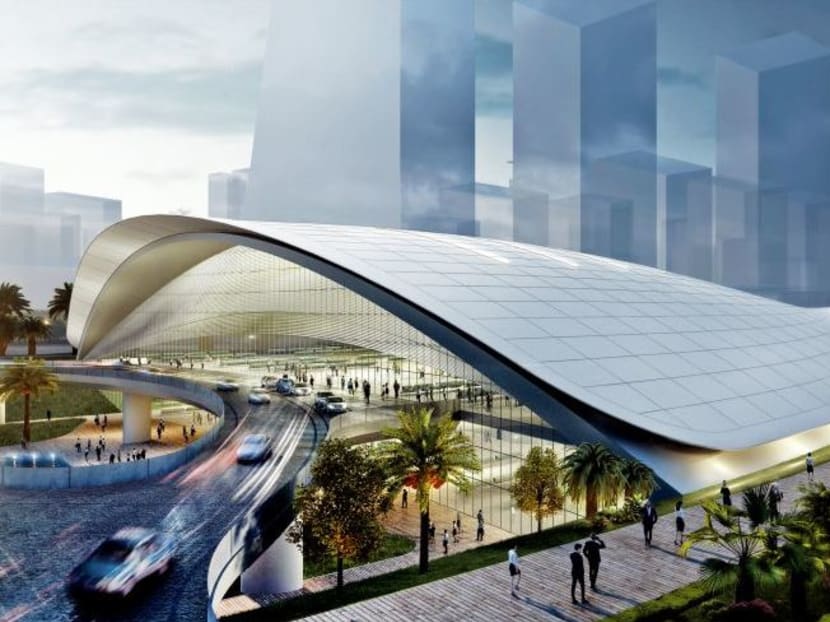Singapore still incurring costs for HSR, will exercise rights to compensation should project be canned: Khaw
SINGAPORE — Should Malaysia terminate the Kuala Lumpur-Singapore High Speed Rail (HSR) project, the Republic will study the implications and exercise its rights, including compensation for expenses incurred, in accordance with the terms of the bilateral agreement inked earlier, said Transport Minister Khaw Boon Wan on Friday (June 1).
SINGAPORE — Should Malaysia terminate the Kuala Lumpur-Singapore High Speed Rail (HSR) project, the Republic will study the implications and exercise its rights, including compensation for expenses incurred, in accordance with the terms of the bilateral agreement inked earlier, said Transport Minister Khaw Boon Wan on Friday (June 1).
In a press statement, Mr Khaw also said Singapore has requested the Malaysian Government to clarify its position on the project. “We have informed the Malaysian Government that Singapore is continuing to incur costs on this project as it awaits Malaysia’s clarification,” he added.
Noting that it was Malaysia which proposed the HSR in 2013, Mr Khaw said Singapore agreed to the proposal because the Government was convinced of the benefits it would bring to the country.
“We still believe that a high speed rail link between Singapore and Kuala Lumpur would be in our mutual interest, economically as well as in terms of the friendship and mutual understanding of our two peoples,” he reiterated.
The minister added that Singapore continues to support the project and fulfil all its obligations under the agreement. Mr Khaw said: “However, it is only tenable to continue the project if Malaysia likewise supports it, and is willing to fulfil its end of the agreement. Singapore looks forward to being informed of Malaysia’s position on the matter.”
While Singapore and Malaysia had signed a legally-binding agreement to build the 350km HSR link, Dr Mahathir Mohamad said in an interview with The Sunday Times in January last year — before he was elected to power — that the project was not a done deal if the opposition came to power.
“We need to do a study whether it is feasible or not because we don't have the money… We have to know whether we really need this HSR or not," he had said.
Since his appointment as Prime Minister, Dr Mahathir has pledged to review all mega projects sanctioned under former PM Najib Razak’s administration, including the HSR and the RM$55 billion (S$18 billion) East Coast Rail Link. Dr Mahathir had labelled some of the projects as "wasteful" and "unnecessary".
On May 21, he expressed alarm at how Malaysia's debt has reached RM1 trillion, adding that important measures must be taken for the country to recover quickly from the situation.
A week later on May 28, Dr Mahathir confirmed that Malaysia would scrap the project in order to cut its national debt, and that it would most likely have to pay compensation of up to RM500 million (S$168 million) to Singapore.
Singapore “will be informed” of the decision, Dr Mahathir had said. He also indicated that mega projects such as the HSR will "definitely" be revisited when finances improve in the future.
After the HSR project was mooted five years ago, Jurong East was earmarked as the terminus in Singapore, with the development expected to add to the vibrancy of the new Jurong Lake District.
The tender for proposals to design, build, finance and maintain the rail assets has drawn strong interest from the private sector since it was called last December, with consortiums from China, Japan, South Korea and Europe throwing their names into the hat. The HSR's express service between Singapore and Kuala Lumpur was scheduled to start running by Dec 31, 2026.












